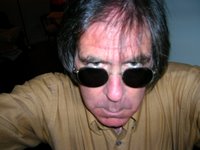October 21
 On the 21st in 1854, Florence Nightingale left England with 38 of her nurses and traveled to Turkey to perform life-saving service in the Crimean War. In addition to being a nurse who exhibited extraordinary dedication to the field of nursing, she was also a brilliant statistician. One of her reports, which would have far-reaching influence, was one that proved that in patients in London hospitals died at a rate of 90% while those patients that did not go to a hospital died at a rate of 60%. She also started the Florence Nightingale School of Nursing and Midwifery, which is still in operation today.
On the 21st in 1854, Florence Nightingale left England with 38 of her nurses and traveled to Turkey to perform life-saving service in the Crimean War. In addition to being a nurse who exhibited extraordinary dedication to the field of nursing, she was also a brilliant statistician. One of her reports, which would have far-reaching influence, was one that proved that in patients in London hospitals died at a rate of 90% while those patients that did not go to a hospital died at a rate of 60%. She also started the Florence Nightingale School of Nursing and Midwifery, which is still in operation today.Nightingale was also an ardent feminist. Between 1850 and 1851, she wrote Suggestions for Thought to Searchers after Religious Truth a seminal work on women’s rights.









